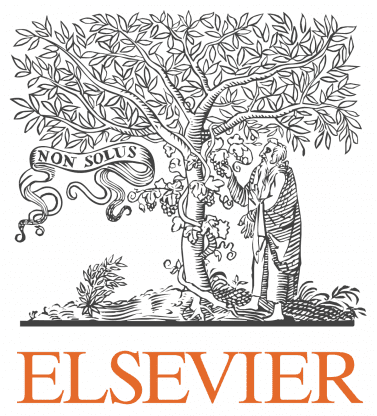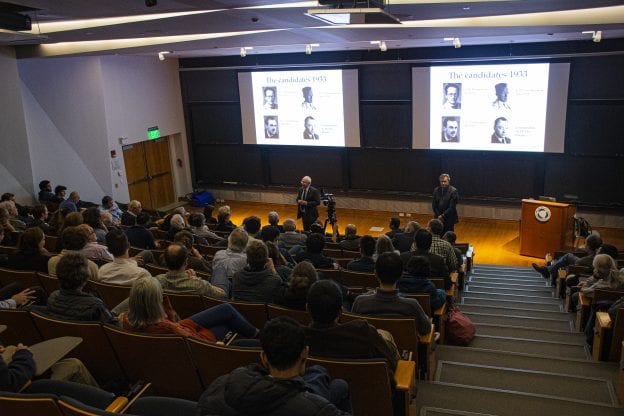
Stony Brook University hosted a day-long Quantum Immersion Workshop in the Wang Center Theater on Monday.
The event highlighting new developments in quantum computers coincidentally came one week after Sen. Chuck Schumer announced his support for the statewide SUNY bid to host multiple national centers for quantum computing research.
Various software companies such as IBM, Microsoft and Google are attempting to program the first useful and accurate quantum computer. The new computation can operate a million times more efficiently than classical computers.
One of the keynote speakers Seth Lloyd, physics and mechanical engineering professor at Massachusetts Institute of Technology, specializes in quantum mechanics and is currently working to build these machines. He shared his expertise in developing quantum machinery, and its importance for scientific research and real-world use.
“You can have a great idea, but if you can’t implement it technologically then you don’t know if it’s going to work or not,” Lloyd said. “So we’re now at a really great stage of quantum computing because now people really are building large scale devices.”
The secret of quantum computers’ efficient operations is their use of qubits. Qubits are similar to classical computer bits which help operate and translate information on a computer using binary code (a coding system that uses the digits “0” and “1”); but instead of translating the “0”’s and one “1”’s separately, qubits can use them both simultaneously. This gives quantum computers the ability to solve more complicated problems effectively, including linear algebraic problems, according to Lloyd.
Many of those who attended the event including researchers, developers and students from Stony Brook University, Brookhaven National Laboratory, National Geospatial-Intelligence Agency and IBM were already somewhat familiar with the technology.
Director of the Institute for Quantum Science and Technology at the University of Calgary, Barry Sanders, was another keynote speaker. He has studied and taught all over the world — Calgary, Canada; Shanghai, China; Bangalore, India and more. Sanders explained, in the least technical way possible, how to build a quantum computer, and estimated when developers expect the quantum computer to complete useful tasks accurately.
“One constant I’ve found is that every expert says it’s 20 years away … come back to me in 20 years and I might still say it,” Sanders said. “The investors tell me they feel there’s a chance that in five years they will be able to use an optimization algorithm to solve a problem that has a billion dollar return.”
Administration and faculty of Stony Brook were also present at the lecture series. The Director of the C.N. Yang Institute, George Sterman, had positive feedback for the speakers.
“I am very impressed with the level of commitment to this growing field and the extent to whichStony Brook has a chance to be a part of these potentially historic developments,” said Sterman.
Even faculty not specifically involved in this research attended the event. William Kay, a proposal manager and writer for the College of Engineering and Applied Sciences, felt he had a better grasp on the topic after attending.
“This has been really fantastic,” Kay said. “I work with faculty who are developing proposals for funding, so this has been really helpful for me to understand quantum computing and all of the challenges that exist.”
“[Quantum computing is] an inevitably, it’s just a matter of time,” he said.
Senior physics major, Andrea Londono, has been working in a quantum computing research lab at Stony Brook for almost three years. She said she attended the event because she was interested in learning more about the technical procedures of quantum computing.
“It’s taking a step back and looking at how computers were made in general,” Londono said. “It’s trying to improve on computation in general and not just trying to improve the speed of what we already have.”
Both keynote speakers recognized that there is still a lot to discover in the field of quantum computing. Lloyd hopes this fairly new development can help scientists in all disciplines uncover something new in their fields.
“We’re at the verge of being able to find out if these ideas are going to work,” said Lloyd, “and that’s what makes this an extremely exciting field right now.”








